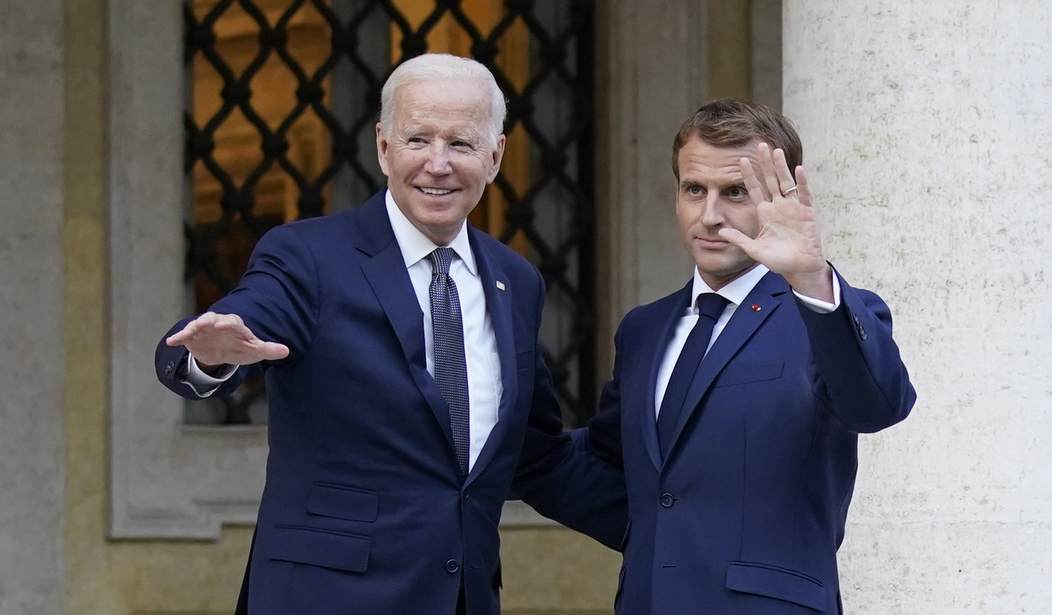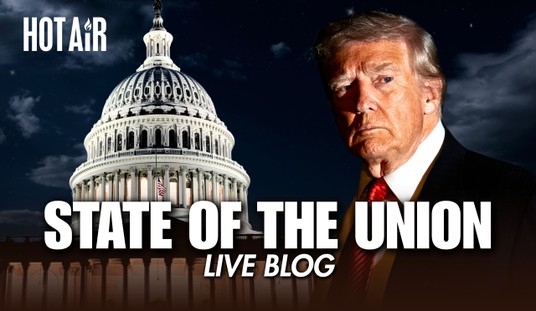It would appear that France, along with Germany and Great Britain, is starting to realize what everyone else aside from Joe Biden had known or at least suspected quite some time ago. Iran is not dealing seriously with the western nations seeking some sort of agreement that would end that nation’s progress toward developing nuclear weapons. The UN ambassadors representing that group of nations, known as the E3, announced last night that the efforts to productively restart talks over the Iran nuclear deal are on life support and the doctors are getting ready to pull the plug. The French ambassador described the situation as nearing “the end of the road.” But in a sign that some of our partners are finally catching up to the current state of reality, the ambassadors weren’t just talking about the diplomatic side of the equation and the failure of the talks. They also admitted that Iran has been steadily expanding its nuclear capabilities and the current state of Tehran’s technology is on the verge of the point of no return. (Reuters)
The door to resuscitating the 2015 Iran nuclear deal is open for now but “we are rapidly reaching the end of the road” to revive a pact that is being gutted by Iran’s nuclear advances, France’s ambassador to the United Nations said on Tuesday.
“We are nearing the point where Iran’s escalation of its nuclear program will have completely hollowed out the JCPOA,” Nicolas de Riviere told reporters, referring to Iran’s 2015 Joint Comprehensive Plan of Action deal with six powers – Britain, China, France, Germany, Russia and the United States.
“Iran has to choose between the collapse of the JCPOA and a fair and comprehensive deal…Iran’s continued nuclear escalation means that we are rapidly reaching the end of the road,” he said, flanked by the U.N. ambassadors from Britain and Germany, a group known as the E3.
The ambassadors from those countries are only saying aloud what all of them must surely have been aware of in private. As we previously discussed here, most analysts now agree that Iran is within six weeks to two months (at the outside) of having enough fissile material to produce a viable nuclear weapon if they decide to put their foot on the accelerator. And where the accelerator is currently sitting can’t be known because they are still barring IAEA inspectors from most sites and disabling their monitoring cameras.
Reuters disappointingly repeats a liberal trope suggesting that everything was going fine until the Bad Orange Man came along and messed it all up.
In 2018, then-U.S. President Donald Trump abandoned the deal and reimposed U.S. sanctions, prompting Iran to begin violating its nuclear restrictions about a year later.
This is, of course, horse hockey, as Sherman Potter liked to say. Donald Trump didn’t walk away from a deal that was functioning as it was intended. Iran was never honoring the deal to begin with. They were just being less blatant about it than they are now. They kept insisting that they were only developing technology to produce nuclear power, but I didn’t believe anyone was dumb enough to fall for that. Or at least I didn’t until this year.
Perhaps this dawning realization among the other participants in the JCPOA talks is the wake-up call the world needed and we can now move on to the question of what comes next. There appear to be only two choices. We either accept that there will be a new member of the nuclear club in the form of one of the most dangerous sponsors of terrorism on the planet or we decide that something must be done to prevent that from happening. I’m not talking about all-out war, here. Isreal has long maintained that they cannot allow Iran to gain nuclear weapons and they have made moves to at least slow their progress in the past. Even the United States has managed to hack into Iran’s computer systems and throw them off schedule.
We have intelligence assets inside of Iran and so do some of our allies. An ideal solution would be to find some counterintelligence avenue that would cripple their nuclear ambitions for decades. But if worse came to absolute worst, getting enough allies to quietly agree to some sort of missile strikes that could send Iran’s nuclear scientists back to the drawing board should probably be considered. They’re not going to launch all-out war in response if they know that the vast majority of the world is arrayed against them.
What’s the alternative? Simply allowing them to have nuclear weapons? I think we all know where they would be “testing” them first if push came to shove.









Join the conversation as a VIP Member